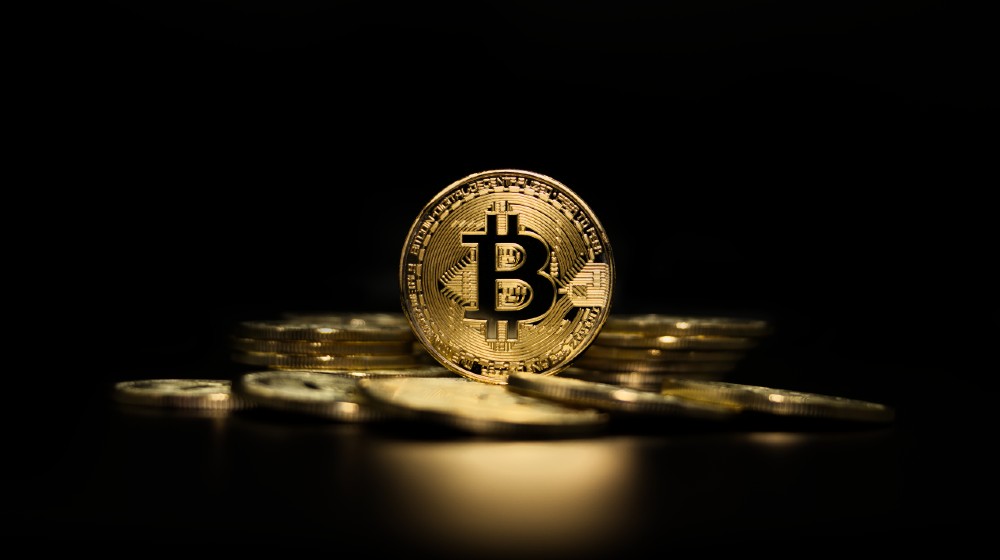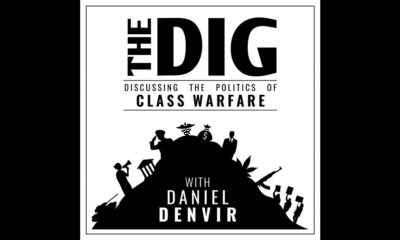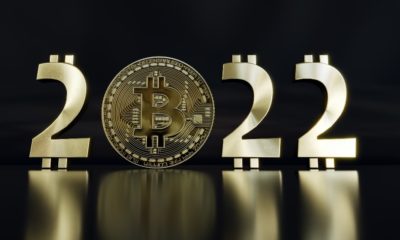Press Release
Understanding Bitcoin & Blockchain in 10 Minutes

Bitcoin's open-source code (software), launched in 2009 by an anonymous developer, or group of developers, is known only by the pseudonym Satoshi Nakamoto. This ingenious codebase enabled a completely trustless network between strangers. And both sender and receiver can remain anonymous if they so desire.
RELATED: Bitcoin and Ether Set New Records Ahead of Coinbase Debut
What is Bitcoin? Understanding Bitcoin & Blockchain in 10 Minutes
Bitcoin is not printed by a government or issued by a central bank or authority. Bitcoin is created by ingenious open-source code (software) installed on thousands of peer-to-peer computers worldwide.
These computers running Bitcoin software solve complex math equations to confirm that every transaction on the network is authentic and original. This happens every 10 minutes and has been happening uninterrupted every 10 minutes since Bitcoin open-source code was published in 2009.
I think the simplest way to answer the question, What is Bitcoin?, is that Bitcoin is a digital currency. Instead of paper, coins, or plastic “money” in your wallet – Bitcoin is sent and received over the internet using your smartphone (or computer).
Bitcoin can be sent and received by anyone worldwide with access to an internet connection.
Bitcoin (digital currency) is essentially money of the internet. Accessible by anyone, anywhere in the world, using a smartphone or computer with Bitcoin software installed and a connection to the internet.
The Bitcoin network is completely decentralized. Thousands of computers around the world running specialized software confirm that every transaction sent on the Bitcoin network is authentic and hasn't already been sent/spent before.
Once confirmed as being authentic, this transaction (block) is added to the blockchain. Bitcoin transactions cannot be reversed. Once sent and confirmed as being authentic, it's recorded in the blockchain. There is no “charge-back” capability with a Bitcoin transaction.
To sum it up, Bitcoin is not oil-money or military-superpower money. Bitcoin is MATH money. A cleaner, more honest version of money. Money created of the people, by the people, for the people.
Bitcoin enables anyone to self-bank. Simply by using the smartphone already in your pocket (or hand). It levels the playing field. Bitcoin gives everyone access to the internet, the ability to participate in the Bitcoin revolution. You should join us.
The blockchain is what makes Bitcoin so special. And truly the next generation of currency. The blockchain is a digital transaction ledger that is viewable and searchable by anyone.
It records every transaction ever sent and confirmed on the Bitcoin network. And allows anyone to verify the details of every transaction. You can review the details of any Bitcoin transaction using a block explorer by simply entering either the block number, sender's address, receiver's address, or the hash/txid number.
With the blockchain, you never have to question whether a payment was sent or received. You simply check the block explorer which acts as a permanent record of every transaction confirmed by the Bitcoin network.
You don't even need to take my word for it and I never need to take yours. The blockchain provides proof. For anyone, at any time to verify if a transaction took place. And every possible detail imaginable about that transaction. Everything except for the identity of the parties involved.
Bitcoin is purchased and sold using a cryptocurrency exchange. Very similar to an online stock brokerage, except instead of stocks – you guessed it, they enable the buying and selling of Bitcoin and other cryptocurrencies (altcoins). Coinbase is the largest and most popular Bitcoin exchange in the United States.
It has a stellar reputation for being user-friendly and very secure. However, the fees are on the high side. Binance US is another very popular crypto exchange and offers buying and selling of a large variety of “altcoins”, in addition to Bitcoin. And their fees are lower than most other competitors. Binance is the largest and most popular cryptocurrency exchange in the world.
Once you purchase your Bitcoin, send it to your personal Bitcoin wallet. And don't lose your password! Anyone gave access to both your “seed phrase” (private keys) and your password can steal your Bitcoin by re-populating YOUR wallet on their device. Just like you can do if the device you store your Bitcoin wallet on is ever lost or stolen.
So be careful. There are likely few worse feelings in the world than realizing you've become a Bitcoin millionaire but can't access your Bitcoin because you forgot your password. It's happened countless times to people throughout Bitcoin's 10+ year history. You don't want to be another sad headline in the news.
Bitcoin is stored in your Bitcoin wallet. A wallet is an ultra-encrypted software that keeps your Bitcoin safe. And yours. There are 2 major types of Bitcoin wallets; a hot wallet which is a software application installed on either your computer or smartphone and a cold storage wallet that is its own hardware device that operates on its own proprietary software and is not continuously connected to the internet.
Most Bitcoin wallets are hot wallets or software applications that securely store your Bitcoin and are installed on devices connected to the internet which gives you easy and instant access to accept and send Bitcoin anytime. All of the top Bitcoin hot wallets are free to download and available either from an official website (PC and Mac), Google Play (Android), or App Store (iOS).
The term “altcoins” is short for alternative coins.
Every time the original Bitcoin code has been modified it is called a “fork”. A new, original blockchain (hardfork) resulting from the modified Bitcoin code is then installed onto various computers (nodes) worldwide.
This new blockchain (altcoin) is given a different name and symbol by their developer(s) to differentiate this new code (altcoin) from the original Bitcoin code. An altcoin of value will improve (s) to the usability of its predecessor's; ie. faster confirmation time, lower network fees, more energy-efficient mining, privacy features, etc.
You Might Also Like:
- Wall St Watchdog Gary Gensler Confirmed As SEC Chair
- Post Covid-19 Impact on Tubeless Tyres Industry
- Biden Wants A Corporate Tax Rate Hike To Fund His Plans
Keep up to date with the latest finance news by following us on Facebook and Instagram.
Article Source: openPR
















1 Comment
WTF